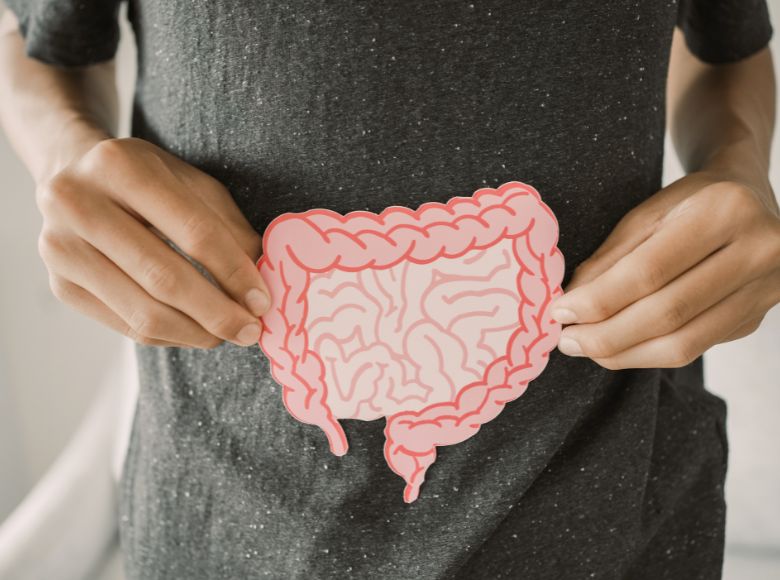If you’ve been researching how to manage your thyroid and hormones, chances are you’ve heard of leaky gut.
Leaky gut is what it sounds like — the lining of the intestines has become “leaky,” allowing undigested foods, bacteria, and other undesirables into the sterile bloodstream.
This causes system-wide inflammation that becomes chronic health issues: autoimmune diseases such as Hashimoto’s hypothyroidism, chronic pain, brain fog, food allergies and sensitivities, depression, eczema, asthma, and myriad other complaints. It makes sense, then, that people need to heal leaky gut in order to manage thyroid symptoms.
Ten causes of leaky gut that worsen your thyroid and hormone symptoms
1 Food
Many inflammatory foods damage the intestinal walls – Gluten, in particular, in addition to dairy, processed foods, excess sugar, and fast foods are other culprits.
2 Alcohol
Excess alcohol is another common cause of intestinal issues.
3 Prescriptions and OTC Medicines
Some medications cause intestinal permeability, including corticosteroids, antibiotics, antacids, and some medications for arthritis. It’s important to note some drugs have inflammatory fillers such as gluten.
4 Bacterial Infections
Certain infections, such H. pylori overgrowth (the bacteria that causes ulcers) or small intestinal bacterial overgrowth (SIBO), can cause intestinal permeability. Yeast, parasites, and viruses are other possibilities.
5 Stress
Chronic stress raises stress hormones, which damages the gut lining over time.
6 Hormone Imbalances
Hormone imbalances can cause leaky gut as the intestines depend on proper hormone levels for good function. Imbalances in estrogen, progesterone, testosterone, thyroid hormones, and stress hormones all contribute to intestinal permeability.
7 Autoimmune Conditions
We often think in terms of leaky gut-causing autoimmune diseases such as Hashimoto’s hypothyroidism, rheumatoid arthritis, or psoriasis. However, sometimes it’s the other way around. The constant inflammation of autoimmune disease can make the gut leaky. Autoimmunity in the digestive tract can sabotage gut health.
Food processing changes the natural structure of foods in a way that makes them inflammatory to the gut. Examples include deamidating wheat to make it water soluble and the high-heat processing (glycation) of sugars. Additives such as gums (xanthan gum, carrageenan, etc.), food colorings, and artificial flavors are inflammatory for some people, too.
9 Environmental Toxins
Our environment surrounds us with toxins, some of which have been shown to degrade the gut lining. Regularly taking glutathione, the body’s primary antioxidant, helps protect the body from toxins.
10 Vitamin D Deficiency
Sufficient vitamin D protects the gut lining; a vitamin D deficiency can make the intestinal lining more vulnerable to damage.
For more information on how to manage your thyroid and hormone health, contact our team.






